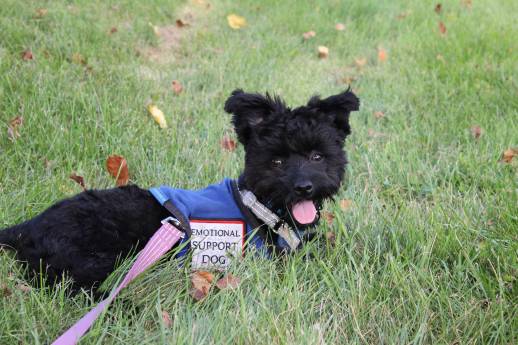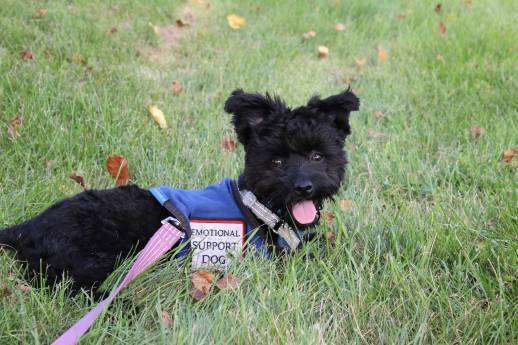A service dog can be a real asset to a person with a disability. These dogs are trained to assist people with disabilities in areas such as mobility, visual and hearing impairments, epilepsy, diabetes, depression, and more.
We help people get the proper documentation to make their pet an official Emotional Support Animal. Online approval in minutes - Housing & Travel letters.
Service dogs can also be very important for those with mental illnesses and psychiatric disabilities because they can be used to calm their minds. However, many people with disabilities are denied the use of service dogs because their disabilities don’t require service dogs.
That is why emotional support animals come in. An emotional support animal is not required to have the same training as a service dog. These animals provide comfort to their owners without the same tasks that a service dog performs.
Can an Emotional Support Animal Be A Service Dog?
While the opposite is possible, the answer to this question is not always a yes. There are many laws in order to protect the rights of people who are disabled. This means that a person with a disability can’t be denied the use of a service dog, but an emotional support animal can be denied if it doesn’t have the same training as a service dog.
Many people who are diagnosed with psychiatric disabilities such as depression or anxiety can benefit from having an emotional support animal. Emotional support animals help those with psychiatric disabilities to cope with their illness and provide them with comfort and companionship.
However, in order for an emotional support animal to be considered a service dog, it must meet certain criteria. The most important thing to remember is that the person must have a documented disability.
We help people get the proper documentation to make their pet an official Emotional Support Animal. Online approval in minutes - Housing & Travel letters.
An emotional support animal can only be considered a service dog if they are working or performing tasks for their owner, but they don’t need to have the same training as a service dog in order to be considered one.
To be a service dog, the emotional support animal must be highly trained and certified. The dog must be able to perform tasks that the owner can’t do for him or herself. These tasks include retrieving items, providing stability and balance, assisting with mobility, and more.
The dog must also be able to function as a deterrent for its owner’s disability. This means that the dog must be able to bark, growl, or show other signs of aggression in order to alert its owner to potential dangers.
To help determine whether an emotional support animal can be a service dog or not, you should check with your local housing authority. The housing authority will make sure that the animal can perform the tasks required for a service dog.
If the animal cannot perform these tasks, it cannot be considered a service dog and you will need to find another way to provide assistance and companionship for your disability.
In conclusion, the answer to the question “Can an Emotional Support Animal Be A Service Dog?” is yes. However, you should be aware that an emotional support animal cannot be considered a service dog if it doesn’t have the same training as a service dog.

Kyoko
Kyoko is from a family of 3 and moved to New York with her parents and siblings when she was 13. Kyoko is fond of spending a great amount of time with pets, specifically her beagle Luna and cat Missy. Her boyfriend often complains that she spends too much time giving attention to their animals. Kyoko has written dozens of articles concerning pets and is aiming at owning a pet shop one day!
Review symptoms, medications & behavior to keep your pets healthy with a Vet Online in just minutes.
Ask a Vet Live Now




